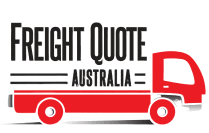Operation Rolling Thunder…
… is Australia’s biggest campaign ever targeting trucking vehicles and was launched in the state of New South Wales on Thursday 1st February. Police pulled over 6000 trucks as part of a huge crackdown on heavy vehicles. It was rolled out over four states and the ACT in one day. The operation was reportedly triggered by the deaths of 5 people involved in 3 separate collisions involving trucks in NSW over 2 days in January this year.
Ray Hadley from 2GB reported that 26 heavy vehicle drivers were caught with drugs in their system in the trucking blitz that started last Thursday. According to NSW Police Assistant Commissioner of Traffic and Highway Patrol Michael Corboy, this is a disgrace. What was concerning, he said, was that people still think that they are able to drive these heavy vehicles under the influence of drugs.
Even though more than 1500 others tested negative to drugs, this wasn’t good enough, according to Corboy, confirming that the 26 offenders were being prosecuted.
Assistant Commissioner Corboy reportedly stated that over 2000 defect notices were issued, a whopping one third of the trucks that were pulled over. Whilst most of these were minor issues, the fact that there were as many as 2000 was a bit of a problem. They also encountered a few major defects, in fact 33 trucks in total were not fit to be on the road. In NSW alone, 900 infringement notices were issued.
Corboy said that the actions taken last Thursday sent out a clear message to freight specialists that the traffic authorities know what’s going on and that they will continue to enforce vehicle safety and good driver behaviour. He warned drivers not to let their guard down, because this kind of action would be taken repeatedly.
Ray Hadley commended Corboy on the figures from the campaign, commenting that although the results were not as good as they ideally should be, they weren’t bad. They showed that most trucks and their drivers are out on the road, doing the best they can.
According to The Guardian, the NSW roads and maritime services director of compliance, Roger Weeks, said that this kind of crackdown was exactly what the professional truck drivers and freight specialists in the industry wanted; eliminating the dodgy operators who were giving the rest of the trucking industry a bad reputation.
On the other hand, national secretary of the Transport Workers Union (TWU), Tony Sheldon, defended truck drivers and transport companies and believed that the wealthy retailers and manufacturers at the top were actually the ones who should be under scrutiny. He claimed that their low-cost contracts were putting undue pressure on transport companies and drivers, causing delays on vehicle maintenance which resulted in trucks not being up to standard.
The transport union was also concerned about the burden being placed on drivers and the pressure they face to work longer hours, skip their breaks and speed. The National Heavy Vehicle Regulator requires drivers of a fatigue-regulated heavy vehicles to follow strict work and rest requirements. Specific information on this can be found here.

